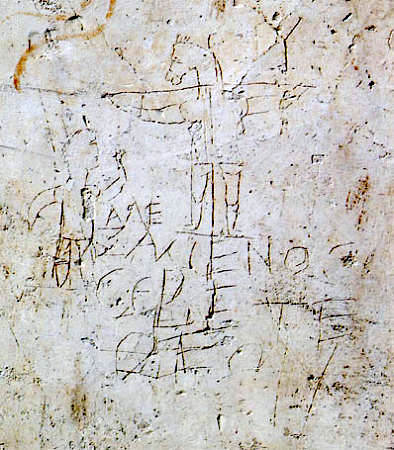rightwinger
Award Winning USMB Paid Messageboard Poster
- Aug 4, 2009
- 285,264
- 158,244
- 2,615
well, that makes a lot of sense.
Old Testament predicts the coming of Christ
Christ comes and teaches and heals and dies and rises from the dead, all written down in the Bible
but the Bible, you say contains no verification of Jesus!

Yes, a Book about Jesus says there is Jesus
You have faith that it is true
But Jesus was a relatively recent Biblical figure. He lived in a time and place where Romans documented much of what was happening. There are no Roman accounts supporting the claims of Jesus in the Bible




